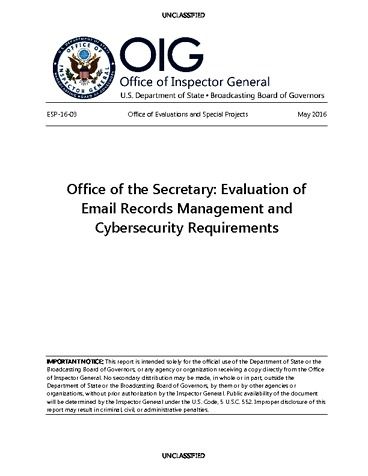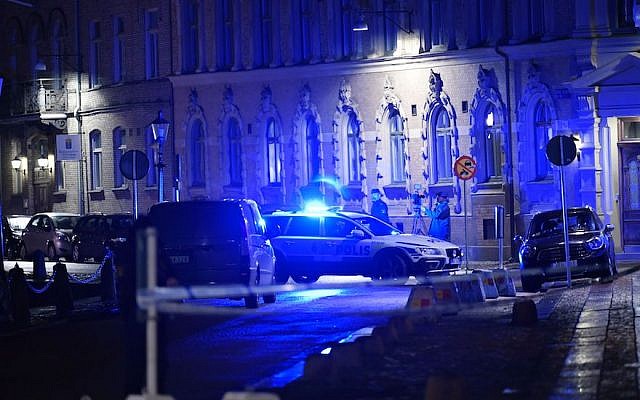So, the both of them collaborated and agreed to essentially steal government documents to forever keep them from access. So, we have Huma Abedin in the mix as well, and to be sure Cheryl Mills and David Kendall are not far behind.
Note: DS-1904 is the document that must be approved and signed when removing government documents. The respective management office or section will conduct the review and certify Form DS–1904 for all departing employees with the exception of Presidential appointees confirmed by the Senate and located in Washington, DC. An inspection and explanation is required..unless of course there is that ever so common ‘waiver’ to sidestep the law.

(Washington, DC) – Judicial Watch today released new U.S. Department of State documents showing former Secretary Hillary Clinton and her then-Deputy Chief of Staff Huma Abedin were permitted to remove electronic and physical records under a claim they were “personal” materials and “unclassified, non-record materials,” including files of Clinton’s calls and schedules, which were not to be made public. The documents show the Obama State Department records would not be “released to the general public under FOIA.”
The new records also show that Huma Abedin was allowed to take five boxes of “physical files” out of the State Department that include records described as “Muslim Engagement Documents.”
Judicial Watch obtained the reports about the records from a Freedom of Information Act (FOIA) request for:
Any and all DS-1904 (Authorization for the Removal of Personal Papers and Non-Record Materials) forms completed by, or on behalf of, any of the following individuals:
Former Secretary Hillary Clinton
Former Chief of Staff Cheryl Mills
Former Deputy Chief of Staff Huma Abedin
Former Deputy Chief of Staff Jacob Sullivan
The documents include a list of official and personal calls and schedules that Clinton removed, which carry a special notation that the documents were not to be made public records. The notation is on an addendum to a DS-1904 signed by Clarence N. Finney Jr., then-director of the Office of Correspondence and Records, who was the reviewing officer. (Judicial Watch has a pending request for the deposition of Finney in separate litigation concerning Clinton emails and the Benghazi terrorist attack.):
NOTE: The Secretary’s call log, grid and schedules are not classified, however, they would not be released to the general public under FOIA. They are being released to the Secretary with this understanding. [Emphasis in original]
***
Electronic copy of “daily files” – which are word versions of public documents and non-records: speeches/press statements/photos from the website, a non-record copy of the schedule, a non record copy of the call log, press clips, and agenda of daily activities
Electronic copy of a log of calls the Secretary made since 2004, it is a non-record, since her official calls are logged elsewhere (official schedule and official call log)
Electronic copy of the Secretary’s “call grid” which is a running list of calls she wants to make (both personal and official)
16 boxes: Personal Schedules (1993 thru 2008-prior to the Secretary’s tenure at the Department of State.
29 boxes: Miscellaneous Public Schedules during her tenure as FLOTUS and Senator-prior to the Secretary’s tenure at the Department of State
1 box: Personal Reimbursable receipts (6/25/2009 thru 1/14/2013)
1 box: Personal Photos
1 box: Personal schedule (2009-2013)
The originals of some Clinton documents were retained, such as the call logs and schedules. For other records, including material that predates Clinton’s tenure, there is no indication that a copy was made. The most significant of these are her personal correspondence and gift binders, which could reflect Clinton Foundation and Clinton Global Initiative ties.
Through its previous investigations Judicial Watch made public numerous examples of Clinton’s schedule being broadcast via email through her unsecure, non-government server (for example, see here, here, here and here.)
The records uncovered by Judicial Watch also contain a list of materials removed by Clinton accumulated by Robert Russo, Clinton’s then-special assistant, including PDFs of Clinton’s “correspondence in response to gifts … thank you and acknowledgements,” as well as other records.
The documents indicate that Clinton removed a physical file of “the log of the Secretary’s gifts with pictures of gifts.”
The receipt of gifts by federal employees in the Executive Branch is regulated:
A “prohibited source” [of gifts] under the regulations is one who seeks official action from the employee’s agency; one who does business or seeks to do business with the agency; one whose activities are regulated by the employee’s agency; one whose interests may be substantially affected by the performance or nonperformance of the employee’s official duties; or an organization a majority of whose members fit any of the above categories.
A gift is given “because of” the employee’s official position if it would not have been offered “had the employee not held the status, authority or duties associated with his Federal position.” Gifts that are “motivated by a family relationship or personal friendship” may therefore be accepted without limitation.
“We already know the Obama State Department let Hillary Clinton steal and then delete her government emails, which included classified information. But these new records show that was only part of the scandal. These new documents show the Obama State Department had a deal with Hillary Clinton to hide her calls logs and schedules, which would be contrary to FOIA and other laws,” said Judicial Watch President Tom Fitton. “When are the American people going to get an honest investigation of the Clinton crimes?”






 Palestinian Authority President Mahmoud Abbas addresses supporters during a ceremony marking the 10th anniversary of the Palestinian leader Yasser Arafat’s death, at his headquarters in the West Bank city of Ramallah,November 11, 2014. (AP Photo/Nasser Nasser)
Palestinian Authority President Mahmoud Abbas addresses supporters during a ceremony marking the 10th anniversary of the Palestinian leader Yasser Arafat’s death, at his headquarters in the West Bank city of Ramallah,November 11, 2014. (AP Photo/Nasser Nasser)